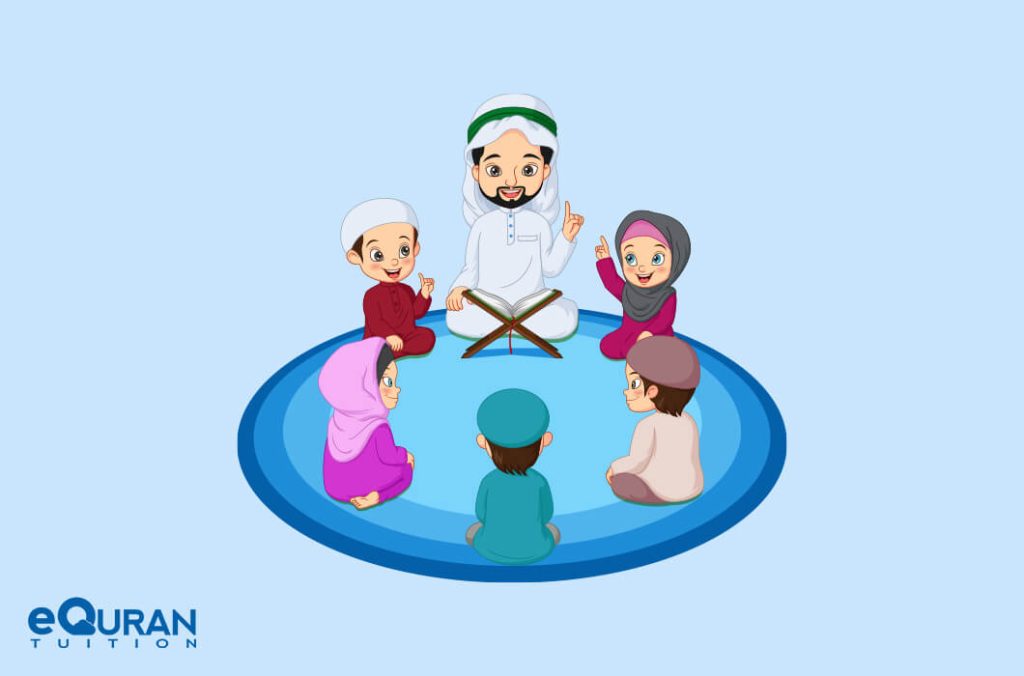
The Quran, the holy book of Islam, is considered by Muslims to be the literal word of God as revealed to the Prophet Muhammad. Its origin and authorship are subjects of profound significance and debate.
In this blog, we will explore when the Quran was written and the question of who wrote it, delving into its historical context and the Islamic tradition’s perspective.
When Was the Quran Written?
The Quran is believed to have been revealed to the Prophet Muhammad by the angel Gabriel over a period of 23 years. This process of revelation began in the year 610 CE and continued until 632 CE, the year of the Prophet’s death.
Therefore, the Quran was not written in the conventional sense during this time; instead, it was orally transmitted to the early Muslim community. During the Prophet Muhammad’s lifetime, the Quranic revelations were memorized and recited by his companions.
These individuals, known as the Sahaba, served as living repositories of the Quran’s text and teachings. The process of memorization was highly organized, and the Quran was preserved in this oral form.
The Written Quran
The actual written compilation of the Quran took place after the death of the Prophet Muhammad. Following his passing, the Islamic community, under the leadership of the first Caliph, Abu Bakr, decided to gather all the scattered fragments of the Quran into a single written compilation.
This compilation was undertaken to ensure the preservation and protection of the Quranic text. Abu Bakr entrusted the task to Zaid ibn Thabit, a close companion of the Prophet Muhammad who had been involved in recording the revelations during the Prophet’s lifetime.
Zaid, along with a group of scribes, collected all the written fragments and oral testimonies from those who had memorized the Quran. This compilation was completed around 634-644 CE, within a few years of the Prophet’s death.
During the Caliphate of the third Caliph, Uthman ibn Affan, another effort was made to ensure the Quran’s uniformity. Several copies of the Quran were made and sent to various regions of the Islamic empire, with the original copy kept in Medina. This standardized text is essentially the Quran as we know it today.
Who Wrote the Quran?
Muslims believe that the Quran is not the product of human authorship but rather the direct word of God (Allah) as revealed to the Prophet Muhammad. In Islamic tradition, the Prophet Muhammad is considered the recipient and conveyer of the divine message, not its author.
Muslims believe that the Quran is eternal and uncreated, having existed with God since before the beginning of time. It was revealed to humanity through the Prophet Muhammad as a guide for all aspects of life.
The Quran itself repeatedly affirms its divine origin. In Surah Al-Qiyamah (75:16-19), it states:
Is it True That the Quran Contains Scientific Knowledge That Was Unknown At the Time of its Revelation?
The Quran is often cited by some scholars and believers as containing verses that seem to describe natural phenomena or scientific principles. These verses are often interpreted as signs of God’s wisdom and knowledge. However, whether the Quran contains scientific knowledge that was unknown at the time of its revelation is a subject of debate.
Proponents argue that certain Quranic verses describe scientific phenomena, such as embryonic development (Surah Al-Alaq, 96:2-8), the expansion of the universe (Surah Adh-Dhariyat, 51:47), and the water cycle (Surah Az-Zumar, 39:21).
They suggest that these verses anticipate scientific discoveries made centuries later. Skeptics, on the other hand, contend that these verses are open to various interpretations and that attributing modern scientific knowledge to ancient texts can be problematic.
How Has the Quran Influenced Art, Literature, and Culture Beyond the Islamic World?
The Quran’s influence extends far beyond the Islamic world and has left an indelible mark on art, literature, and culture throughout history.
1. Literature
The Quran’s rich and eloquent Arabic language has had a profound impact on Arabic literature. It served as a model for classical Arabic poetry and prose, influencing famous poets like Rumi and Hafez in Persian literature. Moreover, the Quranic stories and themes have inspired countless literary works across different cultures.
2. Art and Calligraphy
Islamic art often features Quranic calligraphy, which is considered a form of artistic expression. Arabic calligraphy, with its intricate designs and stylized letters, has been used to embellish architectural elements, manuscripts, and decorative items, showcasing the aesthetic influence of the Quran.
3. Music and Recitation
Quranic recitation is an art form in itself. The melodious and rhythmic recitation of the Quran, known as Tajweed, has inspired various musical traditions and vocal performances in Muslim-majority regions. It has also influenced non-Muslim musicians seeking to incorporate Arabic musical elements.
4. Philosophy and Ethics
The Quran’s moral and ethical teachings have influenced philosophical thought in both Islamic and non-Islamic societies. Scholars like Ibn Sina (Avicenna) and Al-Farabi drew upon Quranic principles in their philosophical works. Additionally, the Quran’s emphasis on justice, compassion, and charity has left a lasting impact on ethical discourse worldwide.
5. Interfaith Dialogue
The Quran’s mention in the context of interfaith dialogue and comparative religion has fostered understanding and dialogue among different faith traditions. Scholars and theologians from various backgrounds engage with Quranic texts to promote mutual respect and understanding.
Conclusion:
In conclusion, the Quran, the holy book of Islam, is a text of profound significance, and its origin and authorship have been subjects of extensive debate and inquiry. The Quran’s revelation spanned over 23 years during the lifetime of the Prophet Muhammad, primarily through oral transmission to his companions, who meticulously memorized and recited its verses.
The written compilation of the Quran occurred after the Prophet’s death under the leadership of Abu Bakr, and it was further standardized during the Caliphate of Uthman ibn Affan. Muslims believe that the Quran is the literal word of God, revealed to the Prophet Muhammad, and its divine origin is emphasized within the text itself.
FAQs:
Q: How was the Quran preserved throughout history, and are there any historical controversies surrounding its compilation?
The Quran was preserved through oral transmission and written records during the lifetime of Prophet Muhammad. After his death, it was compiled into a single text during the caliphate of Uthman ibn Affan. While there are no controversies about its compilation, there are scholarly debates on the variant readings and textual nuances.
Q: What is the significance of the Quranic numerology known as “Abjad” or “Gematria” in Islamic traditions?
Quranic numerology, known as “Abjad” or “Gematria,” assigns numerical values to Arabic letters and words. Some Muslims believe it holds symbolic significance, while others view it as a matter of historical curiosity, with no central role in Islamic theology.
Q: Are there any alternative theories or hypotheses about the origin of the Quran apart from the traditional Islamic belief of divine revelation?
Apart from the traditional Islamic belief of divine revelation, some scholars and researchers have proposed alternative theories about the Quran’s origin, including ideas related to the influence of pre-Islamic poetry, Judeo-Christian sources, or other historical and cultural factors. These alternative hypotheses remain debated within academic circles.
Q: What is the significance of the Quranic concept of “Ijma” in Islamic jurisprudence?
“Ijma” refers to the consensus of Islamic scholars on a particular legal or theological issue. It holds significance in Islamic jurisprudence as it represents a source of authority and interpretation in addition to the Quran and Hadith, helping to guide Islamic legal rulings and practices.
Q: Can you explain the concept of “Taqwa” in Islam?
“Taqwa” is a central concept in Islam, often translated as “piety” or “consciousness of God.” It involves being mindful of God’s presence, obeying His commandments, and avoiding sinful behavior. Taqwa is considered crucial for leading a righteous and morally upright life in Islam.

eQuran Tuition is your trusted online institute in the US for expert Quran learning with Tajweed, connecting you with experienced Quran tutors for a meaningful Quranic journey.




